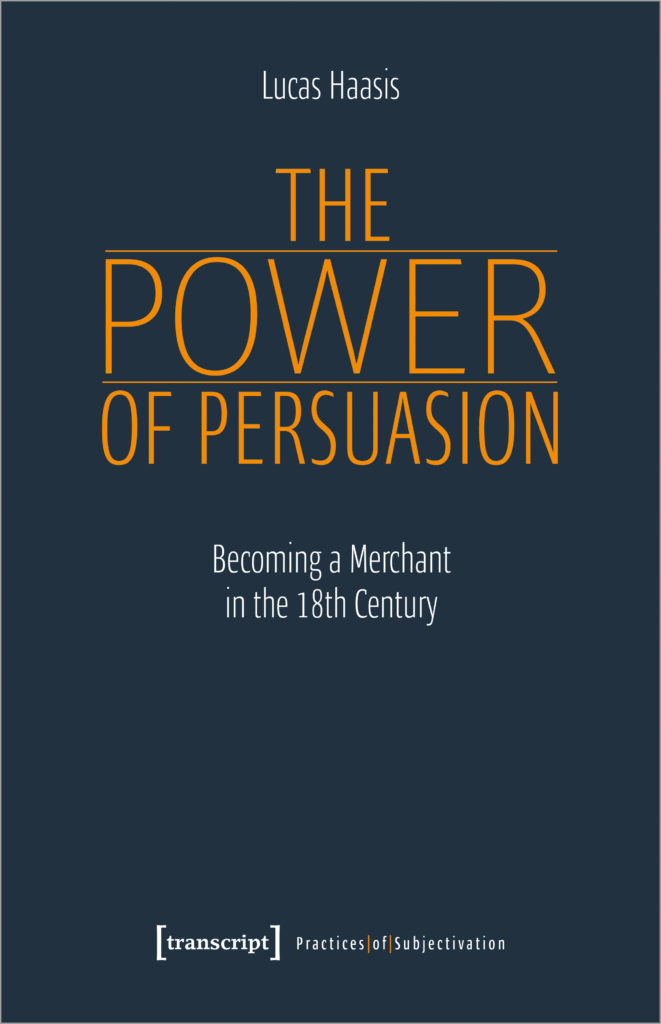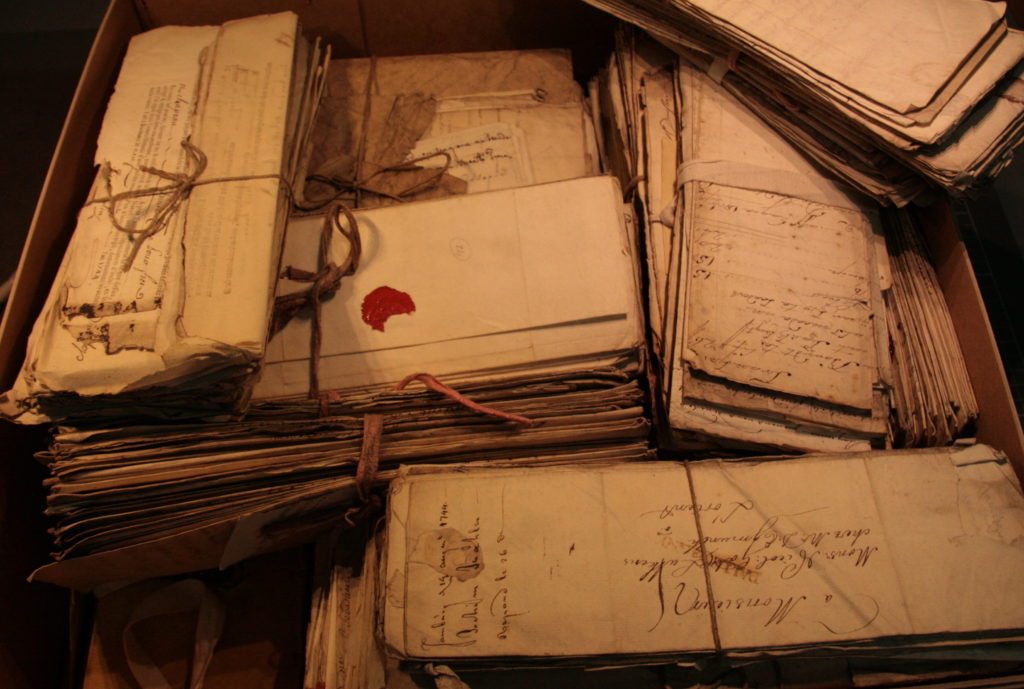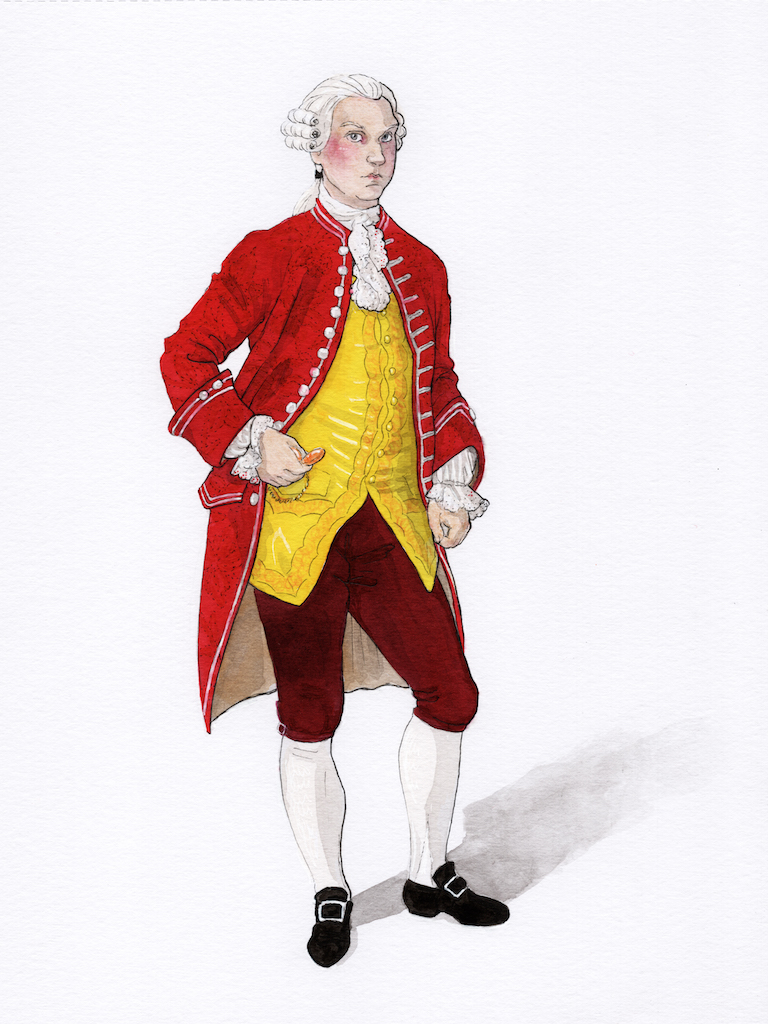
In August 1745, a merchant loaded his business archive onto a ship in Brest bound for his hometown Hamburg. The merchant had spent the previous two years in France travelling for the purpose of establishing and making a name for himself as a wholesale merchant. But the archive never reached its destination. It was confiscated during the capture of the ship by a British privateer. In 2012, this merchant’s archive was rediscovered in the Prize Papers collection at the National Archives. 10 years later, a book has now been published telling its story and the story of its original owner.
The mercantile establishment phase
The book offers the first comprehensive work on the establishment phase of an Early Modern wholesale merchant. It tells the story of Nicolaus Gottlieb Luetkens (1716-1788), who went forth from his hometown Hamburg in 1743 to travel through France in order to ‘prove himself in trade’ as he himself put it. The business trip sealed his transformation into a settled merchant. Two years later, Luetkens returned to the Elbe city as a respectable man of trade. How he succeeded in this regard is the main storyline of the book. Based on his example and following his path, we learn what it meant to become a successful merchant because he simply had no other option than to be successful. Everything else would have meant disaster for his career.
This microhistorical study offers deep insights into the crucial career steps and the fields of activity of Early Modern merchants in establishment, covering case studies on 18th century shipping business, commission trade, high-risk trade, the founding of a merchant house and marriage preparation. The book also highlights the important role of foreign merchants as logistical enablers, as shipowners and commission agents, and neutral intermediaries within the French economy. For Hamburg merchants like Luetkens, direct trade with the French colonies was forbidden due to France’s mercantilist economic system. However, the merchants were allowed to re-export and distribute colonial goods such as coffee, tobacco and sugar from France, e. g., to the European hinterland or the Baltic States. They also enjoyed legal privileges such as tax exemption and were active and established in many places in the French port cities. Thus, these merchants indirectly supported the French colonial system, which at the same time helped them find prosperity and wealth.
Luetkens’ establishment phase laid the foundation for a highly successful career. The loss of his archive did not prevent him from opening his trading house and continuing to expand his trade in French colonial goods from Hamburg, where he specialized in French sugar. In the end, the merchant house of “Luetkens & Engelhardt” became the third largest merchant house of the sugar trade in Hamburg.

The reason why we can learn so much about the establishment phase as a decisive stage in a merchant’s life from the Luetkens archive today is that the records were taken from him at the precise moment when he had entered the finish straight of his endeavours. He lost his archive shortly before his marriage and the opening of his own trading house: a tragic incident for the original owner, a stroke of luck for historians today.
Researching a time capsule
The Luetkens archive is a time capsule. It still holds all incoming and outgoing letters along with further mercantile records. These records have survived in their original condition, which means that it can be used to reconstruct this man’s establishment phase in great detail using an ethnographically inspired approach. On the basis of intensive archival work, the book paints a vivid picture of the events presenting themselves in an Early Modern establishment phase. At the same time, the microhistorical approach introduces a novel focus for microhistorical research. Due to the special nature of the source collection, which mostly consists of over 2.200 letters in three languages, German, French and Dutch, the main aim of the study is not only to tell the story of the merchant Luetkens, but rather to broaden the analytical focus on mercantile letter and business practices at the core of mercantile establishment, including over 30 more correspondents in the analysis. This allows to gain a comprehensive view of the North-European world of trade and Franco-Hamburg relations in the 18th century.
Letters as nerve centres

Large parts of mercantile life were dependent upon the exchange of letters, letters such as business letters, family letters or ship captain’s letters. Letters became the nerve centre of a merchant’s life. I use this fact as the starting point for my microhistory, which I define as an extended variant of a microhistorical approach. I developed a so-called praxeological microhistory focussing on the analysis of past practices. Examples of letter practices that I elucidate are letter-bundling practices, letter packets, writing in different national languages (French for business letters, Dutch and Low German for the correspondence with ship’s captains) and mobilizing different language registers (business and trade, patronage, gallantry, love and friendship), the practice of using historical speech acts or material practices such as leaving letters unsealed. These practices, finding their application within polyphonic letter conversations, were used by the historical actors to manage their business.
The power of persuasion
At the core of the efficacy of the letter and business practices stood a premise that also represents a major premise of mercantile establishment: the practices needed to be performed convincingly. In the book, I identify practical principles of persuasion underlying letter practices and business culture during the 18th century, principles such as demanding loyalty, using the sledgehammer method, preferential treatment, or mollification. Last but not least, the chapters give insight into topics such as maritime neutrality, the “Turkish Threat”, the rise of the private merchant firm as a business model, the Protestant International, or the 18th century ideal of love. In a nutshell, this microhistory does not only offer insights into the life and letters of the merchant Luetkens, it also paints a vivid picture of the world this merchant was living in, and, ultimately at its core, the study brings into the view the powers of persuasion effective in letter and business practices which, in the end, paved the way for Luetkens becoming one of Hamburg’s most successful merchants in the 18th century.
My special thanks go to Dr Els van Eijck van Heslinga, former director of the Royal Library of the Netherlands, Koninklijke Bibliotheek (KB), and the entire team of the Sailing Letters Project for inviting me to join their research team in August 2012 and for their hospitality.
Biography

Dr Lucas Haasis is a postdoctoral researcher and the research coordinator of the German-UK Prize Papers Project. He is also a lecturer of Early Modern History at the Carl von Ossietzky University of Oldenburg, Germany. His research focuses on 18th-century letters, mercantile culture of the 18th century, maritime neutrality, materiality studies, and praxeological approaches in historiography and global microhistory. His book The Power of Persuasion. Becoming a Merchant in the 18th Century was published by transcript publishing in March 2022. More information
The 60-page-long introduction of the book is available in open access here.
